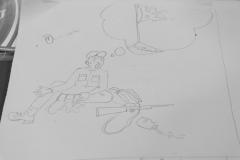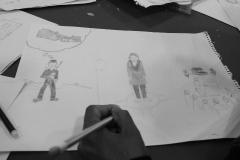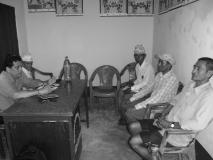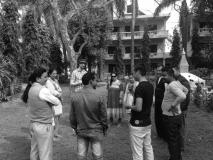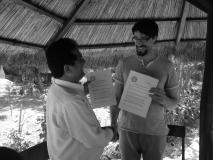Conflict Transformation impacts the root causes of conflict. Transforming these causes means that constructive, sustainable and non-violent strategies for human coexistance and cooperation can prevail. Building strong and healthy relationships is accompanied by transforming systems and structures that cause violence, human rights violations and injustice.
We need to transform
People's Intra- and Interpersonal Relations, Capacities and Mindsets
relationships
mode of thinking and behaviour
discourses
communication
interests
knowledge, know-how and experienceSystems and Structures
institutions
structures
cultures
Our members, advisors and networks are comprised of experienced peace builders, mediators, trainers, coaches, change makers and peace building artists with vast experience in conflict transformation in Germany, Europe and around the world (eg Nepal, Myanmar, Middle East, Senegal, Colombia). Culture for Peace sucessfully implements peace building & community-based projects in Nepal and has developed a promising project design for a dialogue project in Myanmar.
To contribute to transforming conflicts, we offer and provide
- Storytelling, Dialogue and Mediation (Sha:re Approach)
- Intra-personal skills and psychological resources / Capacity Building
Stregthening Civil Society (predominantly grass-roots, non-center, actors)
- Two-way learning, process- and context-oriented Organisational Development & Coaching
- Project Cycle Management
- Public Relations & Advocacy
- Human Resource Management
Strategic Arts- and Media Based Approaches to Conflict Transformation


